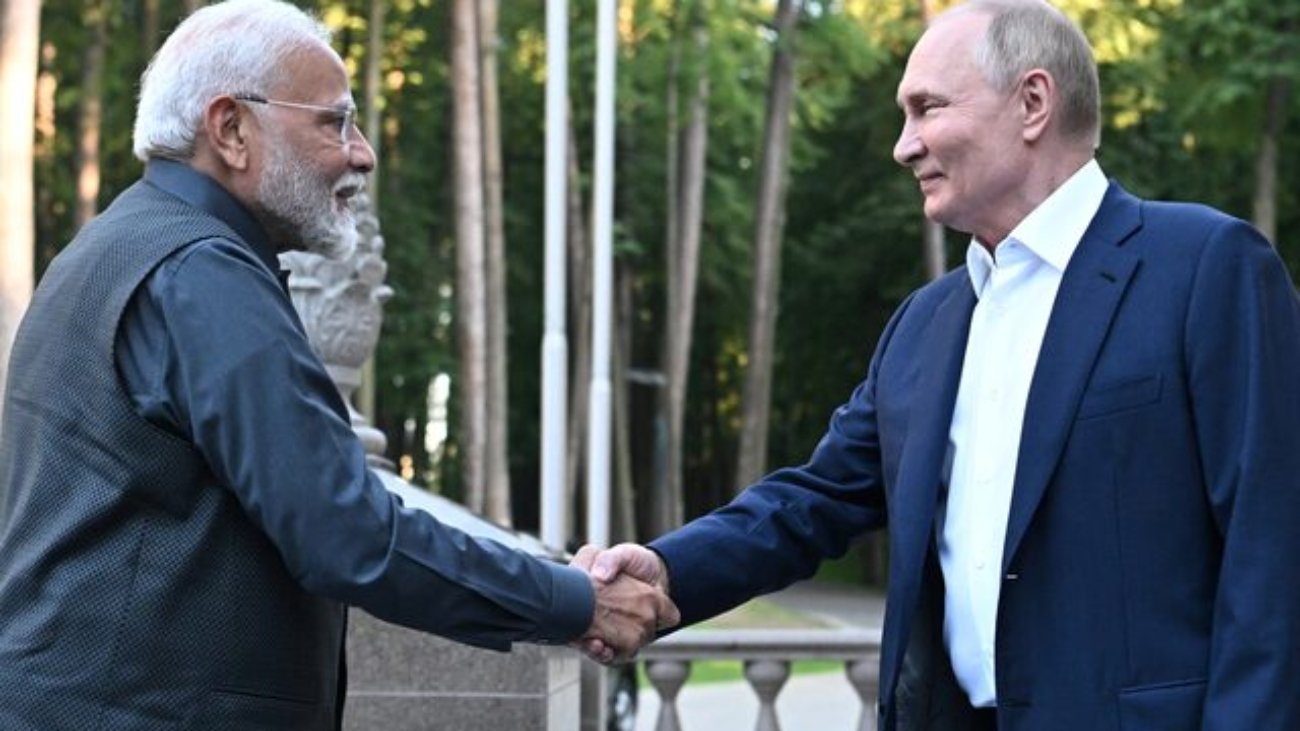In a major diplomatic move that underscores the close ties between India and Russia, President Vladimir Putin reached out to Prime Minister Narendra Modi after his high-profile visit to Alaska, where he held talks with former U.S. President Donald Trump. The phone call between the two leaders has attracted global attention, not only for its timing but also for its implications on ongoing international issues, particularly the Ukraine conflict and the shifting balance of global trade.
The Context of the Alaska Visit
Putin’s trip to Alaska, where he met with Donald Trump, was a significant development in global geopolitics. The talks largely centered on the Ukraine crisis, with Trump pitching ideas for a potential peace deal. Following this visit, Putin picked up the phone to personally brief Prime Minister Modi, highlighting the value Russia attaches to India’s role as a major global partner.
The decision to call Modi immediately after the Alaska summit shows how Moscow continues to prioritize its long-standing strategic partnership with New Delhi. For India, it also reaffirmed its place as an important player in international diplomacy, trusted by both global powers and emerging nations alike.
Key Highlights of the Conversation
During the phone call, Putin shared insights into the Alaska summit and its focus on finding pathways toward peace in Ukraine. Modi, in turn, reiterated India’s consistent stance—emphasizing dialogue, diplomacy, and peaceful resolution of conflicts over military confrontation.
The two leaders also reviewed their ongoing bilateral ties, expressing commitment to strengthening cooperation across energy, defense, trade, and technology. Modi thanked Putin for keeping India informed on major global developments and underlined the importance of communication between the two countries in times of shifting geopolitical realities.
Why This Call Matters
Reinforcing Strategic Trust
The phone call reaffirmed the trust and open communication channels between Moscow and New Delhi. Russia continues to treat India as a valued partner whose opinion matters on sensitive issues like Ukraine, while India benefits from being seen as a responsible mediator committed to peace.
India’s Balanced Global Position
India has carefully maintained its balanced stance on the Ukraine conflict. While it continues to import Russian oil, India has also consistently called for dialogue and de-escalation, avoiding alignment with any single bloc. Putin’s decision to call Modi reflects recognition of India’s unique and independent position in global affairs.
Broader Diplomatic Outreach
The call was not an isolated gesture. Putin also reached out to other leaders from Brazil, South Africa, and Central Asia around the same time, signaling a broader diplomatic effort to gather support and share Russia’s perspective ahead of upcoming talks involving Ukraine. India’s inclusion in this circle demonstrates its growing influence in shaping multipolar diplomacy.
Trade and Economic Backdrop
The call also comes at a time when India is facing increased pressure from the United States over its continued imports of Russian oil. Recent U.S. tariffs on Indian goods have further complicated the trade relationship between Delhi and Washington. Against this backdrop, Putin’s outreach carries additional weight, suggesting that Moscow and New Delhi are keen to further consolidate ties despite external pressures.
Energy trade between India and Russia has already reached record highs in recent years. With the global energy market facing disruptions, the two countries are expected to deepen cooperation not only in oil but also in nuclear energy and defense manufacturing.
Looking Beyond Ukraine
While the Ukraine crisis dominated the conversation, the call also touched on the broader India–Russia relationship. Both countries have decades of collaboration in defense, with Russia supplying advanced weaponry to India and supporting co-development projects. In addition, the two nations are expanding cooperation in emerging areas like space technology, cyber security, and digital innovation.
India’s participation in BRICS, the Shanghai Cooperation Organisation, and other multilateral platforms further strengthens its alignment with Russia on global issues where both nations advocate for multipolarity and reduced Western dominance.
The Symbolism of the Call
Diplomatic calls between world leaders are often more than just exchanges of information—they carry powerful symbolism. Putin’s call to Modi after the Alaska meeting signaled several key messages:
To the world, it showed that Russia values India’s role as a strategic partner.
To India, it demonstrated trust and recognition of its balanced global stance.
To other global powers, it reinforced the idea that India continues to be a bridge in international diplomacy, engaging with both Western and non-Western blocs.
Conclusion
The phone call between President Putin and Prime Minister Modi following the Alaska summit marks another chapter in the evolving dynamics of international relations. It reflects the depth of the India–Russia partnership, showcases India’s increasing diplomatic influence, and highlights the global search for solutions to the Ukraine conflict.
As the world watches these developments unfold, one thing is clear: India’s position as a key interlocutor between competing global powers is stronger than ever. For both Russia and India, this communication is not just about immediate geopolitical concerns—it is about building a resilient partnership that adapts to the realities of a rapidly changing world.

Leave A Comment